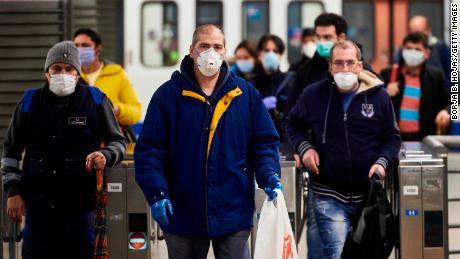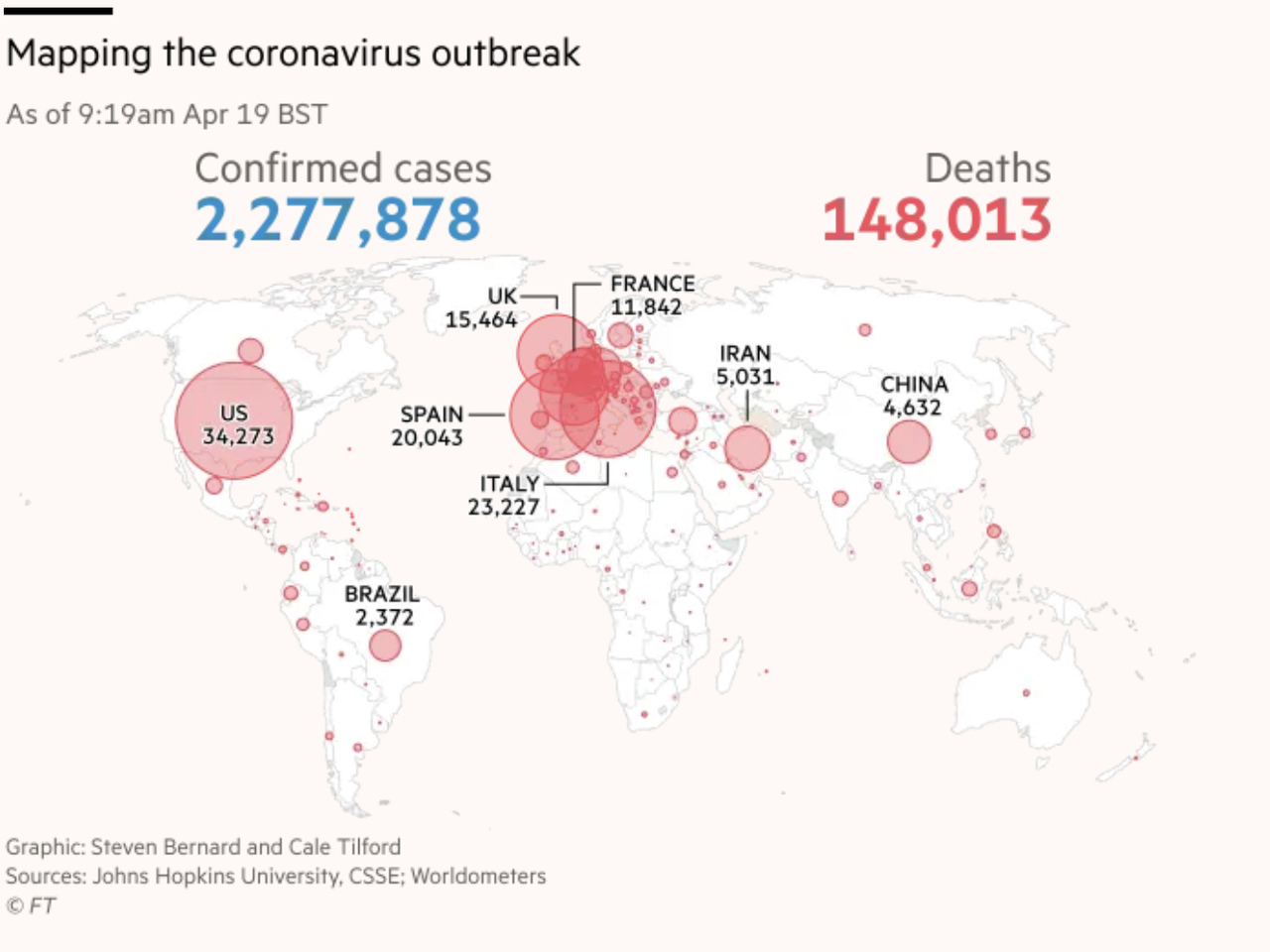New Cases In Russia, Singapore Soar, Spain Reports Lowest Single-Day Death Toll In A Month: Live Updates
One day after Spanish PM Pedro Sanchez announced plans to extend what is about to become a strict, six-week-long countrywide lockdown until May 9, health authorities declared another drop in the rate of new COVID-19 cases and deaths, while also reporting an encouraging drop in patients in severe condition, suggesting that the country’s dramatic efforts have worked – even if doubts remain about the accuracy of the government’s figures.
Of particular concern to lawmakers, particularly members of the Spanish opposition, are the numbers of deaths that have occurred in nursing homes and other private facilities that are especially susceptible to the virus, and whether or not they are accurate, or even whether the government is deliberately trying to obscure the death toll to keep the mortality rate, an already outrageous 10%, from climbing even higher.
To be sure, many experts suspect these double-digit mortality rates seen in Spain, but also in other countries including Italy and the UK, are a sign that the virus is much more widespread than official tallies reflect. The countries with the most thorough testing – countries like Germany and South Korea – have kept their mortality rates at a fraction of 1%, which is certainly encouraging. In the US, the mortality rate has been pretty steady, though it ticked up to ~5% this week.
As the debate over accurate accounting rages in Spain, Sanchez asked parliament during a televised address last night to pass a plan to extend the lockdown but begin easing some of the more-strict measures like one requiring children to remain in the house. The PM hopes to have them playing outside again by the end of the month.
Now, to conveniently support his argument for why Parliament should support his plan, the health ministry has reported its lowest single-day death toll in a month.
Things were also looking fairly rosy in the UK, which reported another 596 hospital deaths, a drop of nearly 300 from yesterday’s tally.
As of 9am 19 April, 482,063 tests have concluded, with 21,626 tests on 18 April.
372,967 people have been tested of which 120,067 tested positive.
As of 5pm on 18 April, of those hospitalised in the UK who tested positive for coronavirus, 16,060 have sadly died. pic.twitter.com/sO9IRInBsu
— Department of Health and Social Care (@DHSCgovuk) April 19, 2020
Elsewhere, in Russia, President Vladimir Putin is being forced to reckon with the reality that SARS-CoV-2 has penetrated Russian society to a much deeper extent than had been previously believed. The rate with which new cases are being reported continued to accelerate on Sunday, as health officials counted 6,060 new cases over the past 24 hours, another record count. The 16% jump brought the country’s total to 42,853. Meanwhile, a total of 361 people have died from the virus. President Vladimir Putin has warned that the outbreak is not yet close to peaking, even after imposing a national lockdown last month.
“This year, [Easter] is being celebrated amid forced restrictions,” Putin said on Sunday, which is the traditional Easter celebration day for all Orthodox Christian churches, like the Greeks and the Russians, among others.
“These are essential in fighting the spread of the disease,” Putin said about the government’s lockdowns and social-distancing guidelines.
Signs of real progress in Europe and the US (not to mention South Korea and a handful of other countries that acted aggressively and achieved outstanding results) have helped ease the sense of terror brought about by a lingering uncertainty: As Gov Cuomo put it, America now knows for sure that these measures – social distancing and lockdowns – have been working to contain the virus.
The question now is ‘to what degree?’, and will we risk a serious relapse if America starts reopening in the next few weeks? However, with Japan enduring a sudden and surprisingly harsh resurgence, and even China doing its level-best to tamp down any reports of new clusters discovered since “the Great Reopening” began, more countries are starting to second-guess their decisions, and on Sunday, South Korea decided to extend its ‘social distancing’ campaigns – just in case.
News this morning about a Hormel-owned food processing plant shutting down are raising fears that, should the lockdown drag on for much longer inside the US, the tears at the social fabric might start to widen.
And as Trump’s critics continue to deride reports about the virus potentially having leaked from a bio-lab, Australia on Sunday called for an “independent, international inquiry” into the origins of the coronavirus in Wuhan, and officials even signaled that the country’s relationship with China – which has helped fuel Australia’s 3-decade economic boom, an expansion virtually unrivaled in modern times – “will change”. And it doesn’t sound likely that they’ll be changing for the better.
More alarming even than Russia and China, however, is Singapore. The city-state won plaudits for containing the coronavirus early on with strict contact-tracing protocols that required contacts to be identified within 2 hours. But for some inexplicable reason, the densely populated city saw its total case count grow by 160% over the past week, with officials reporting hundreds of new infections on Friday and over the weekend, a revelation that is simply staggering in light of the strict lockdown measures that the country is currently under. The country reported a jump of almost 1k new cases on Saturday, as we noted at the time, with most of the new cases tied to packed migrant-worker apartments that are basically like college dorms.
Tyler Durden
Sun, 04/19/2020 – 11:40
via ZeroHedge News https://ift.tt/3ewOHLb Tyler Durden

